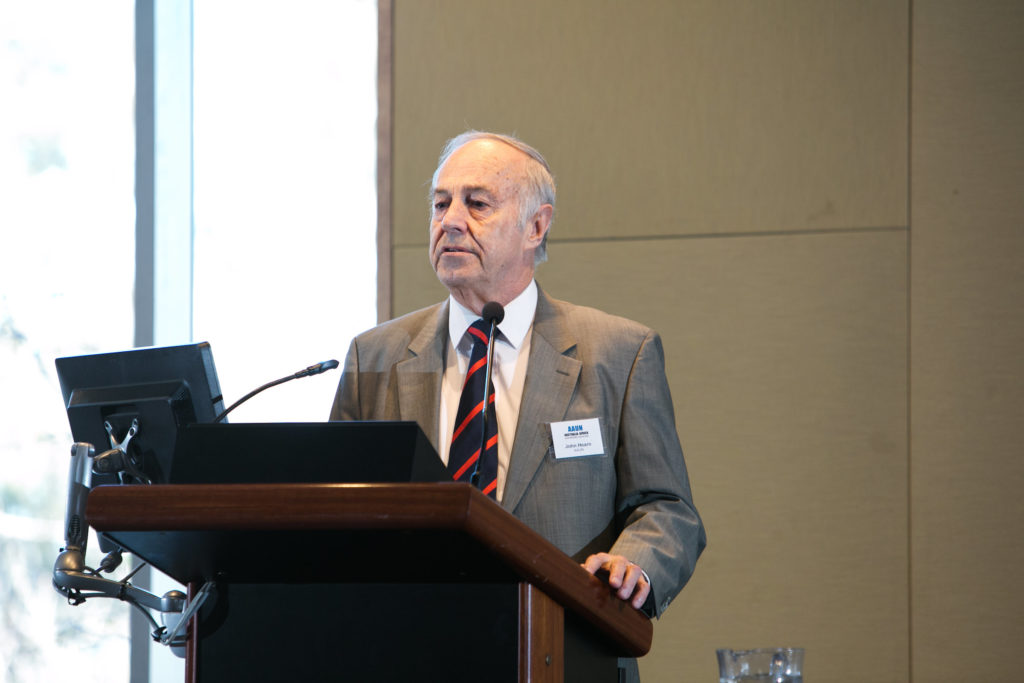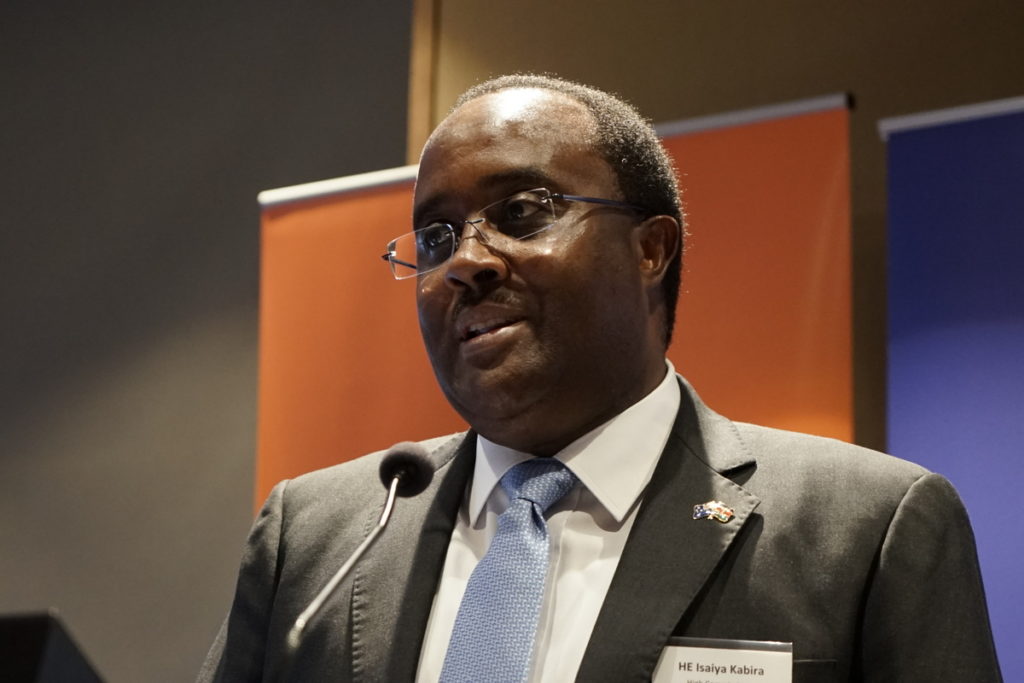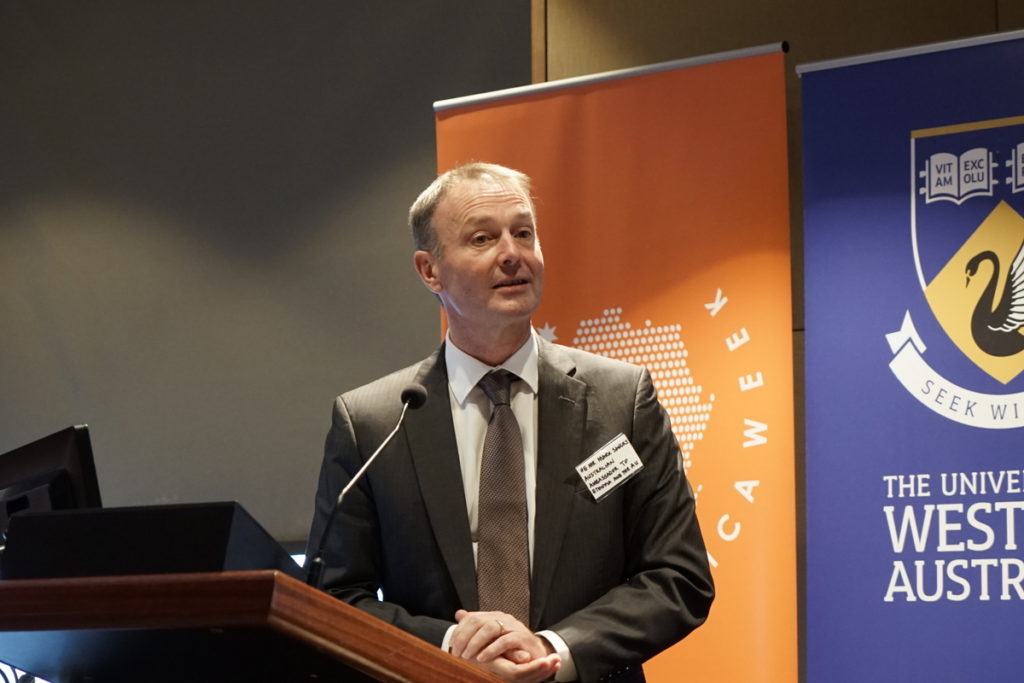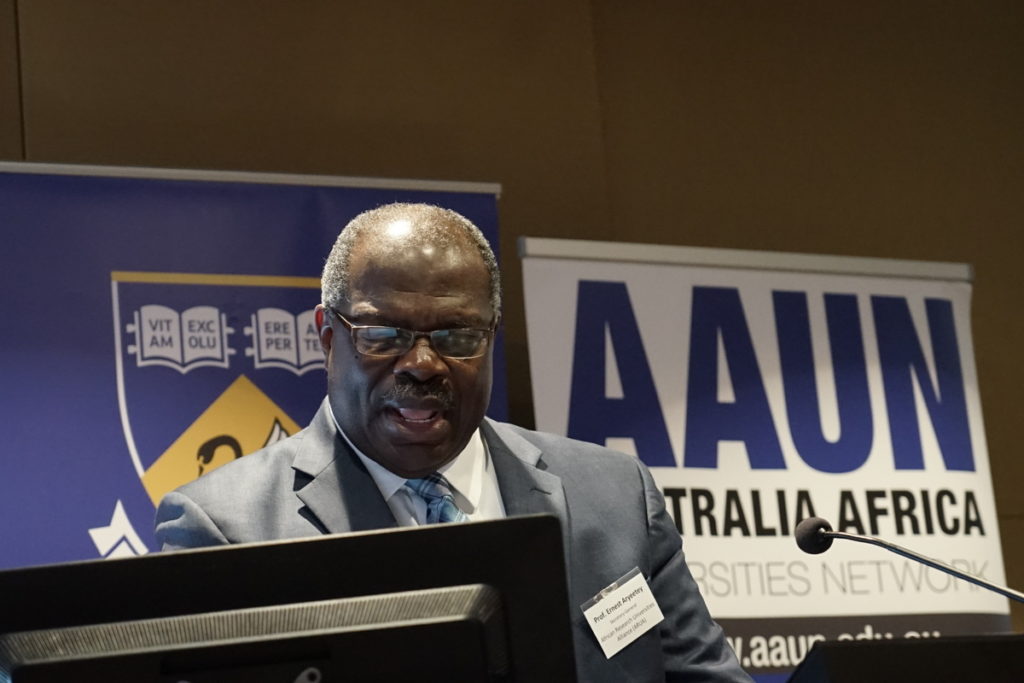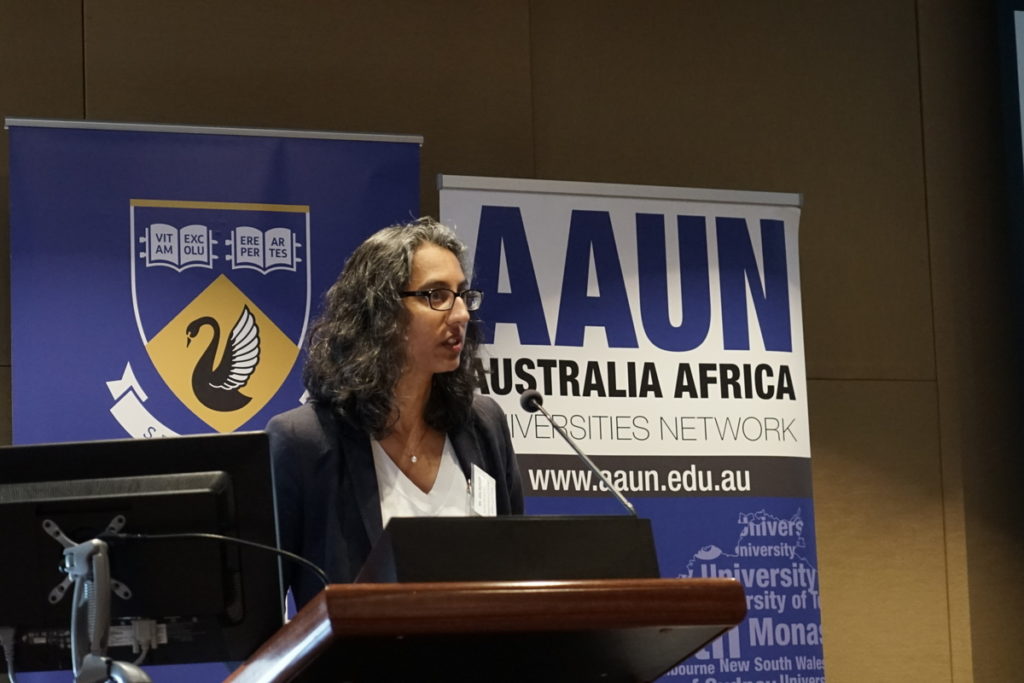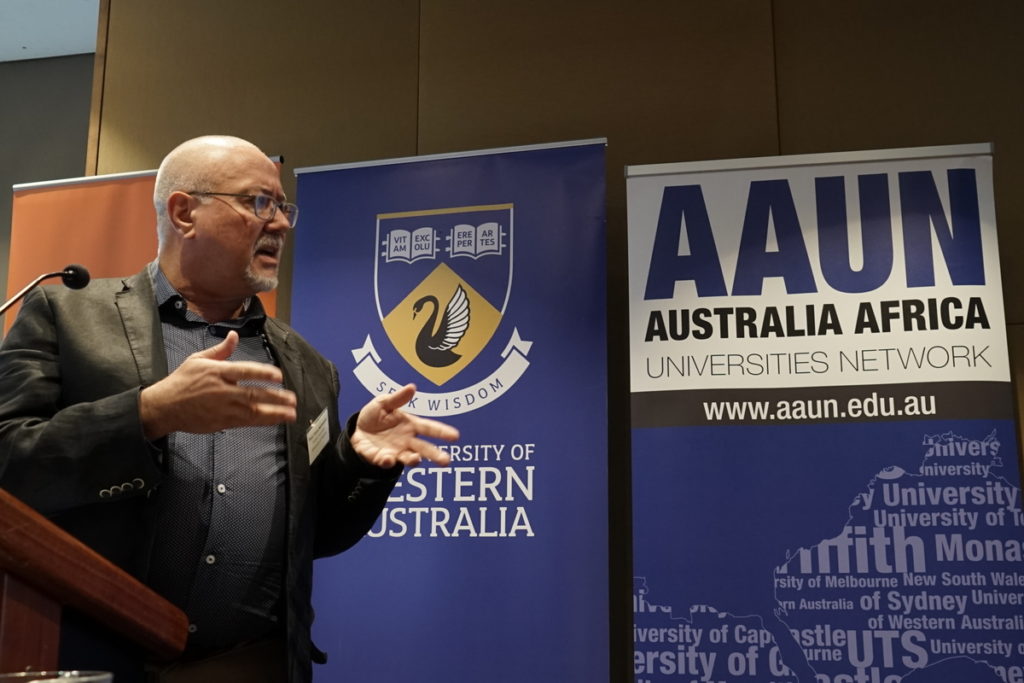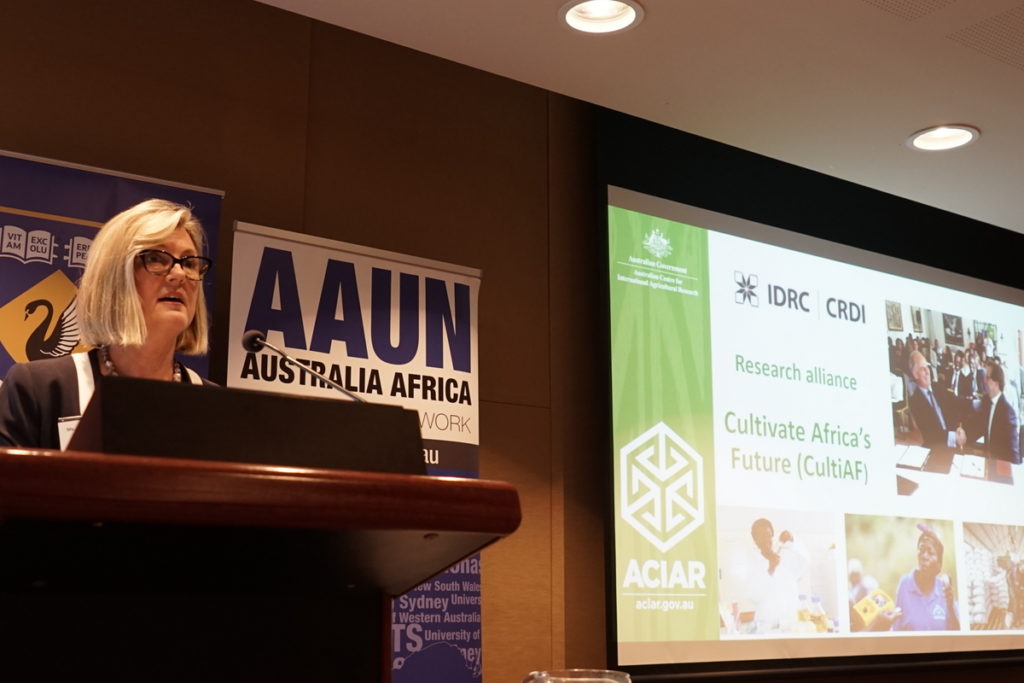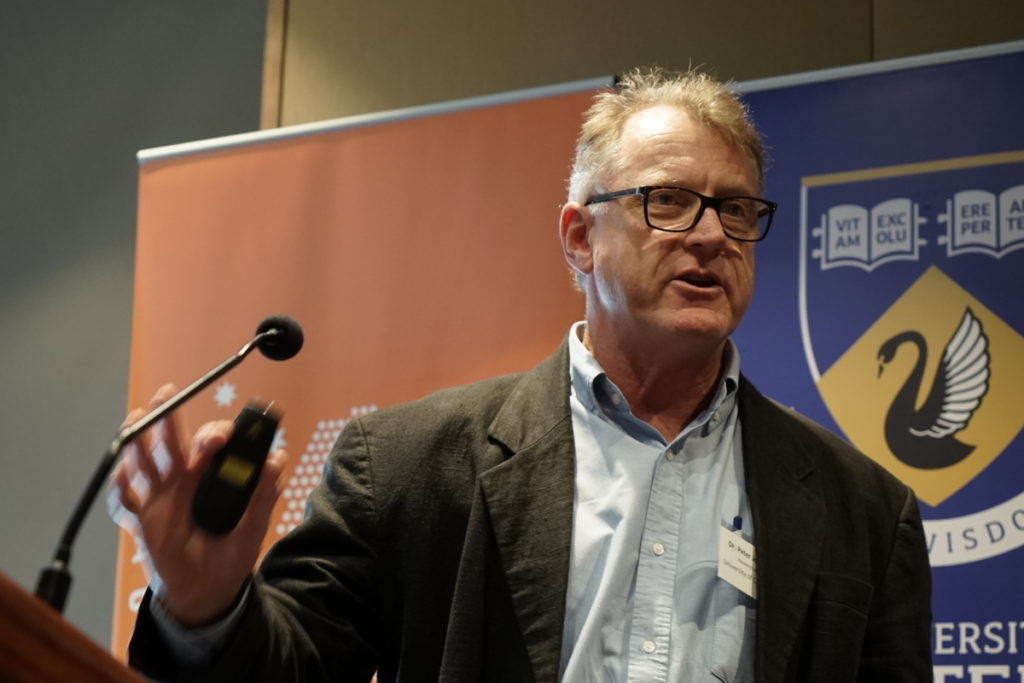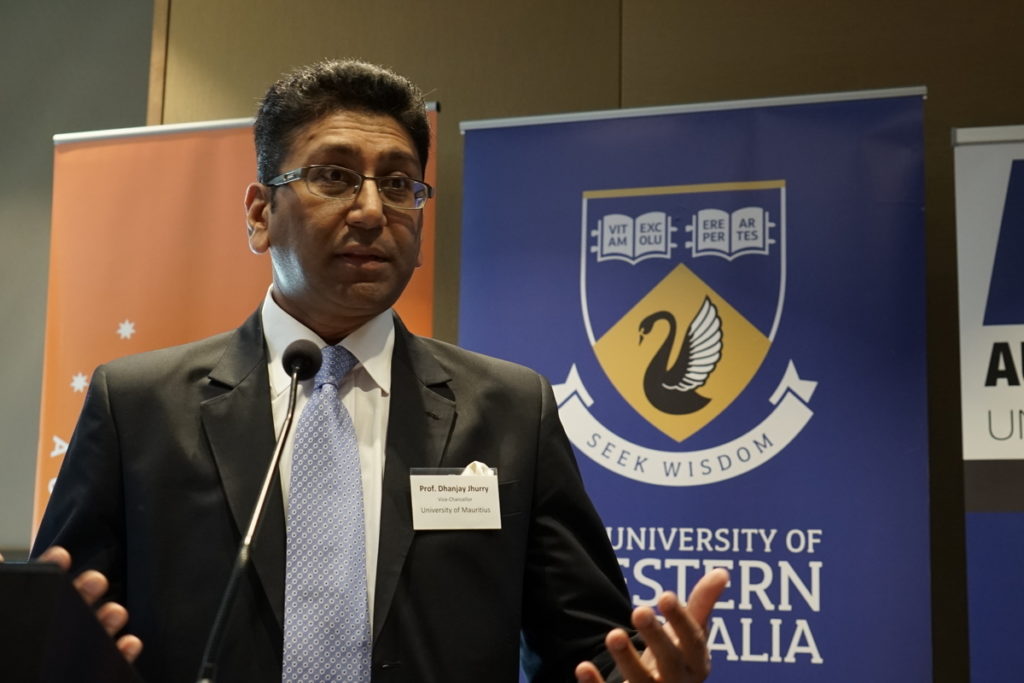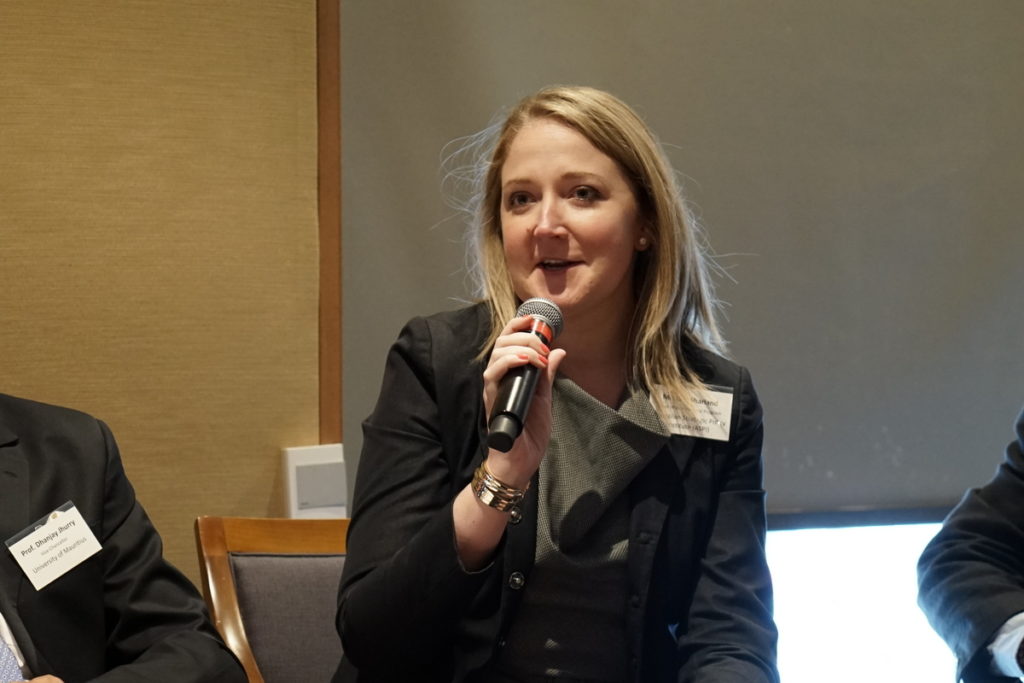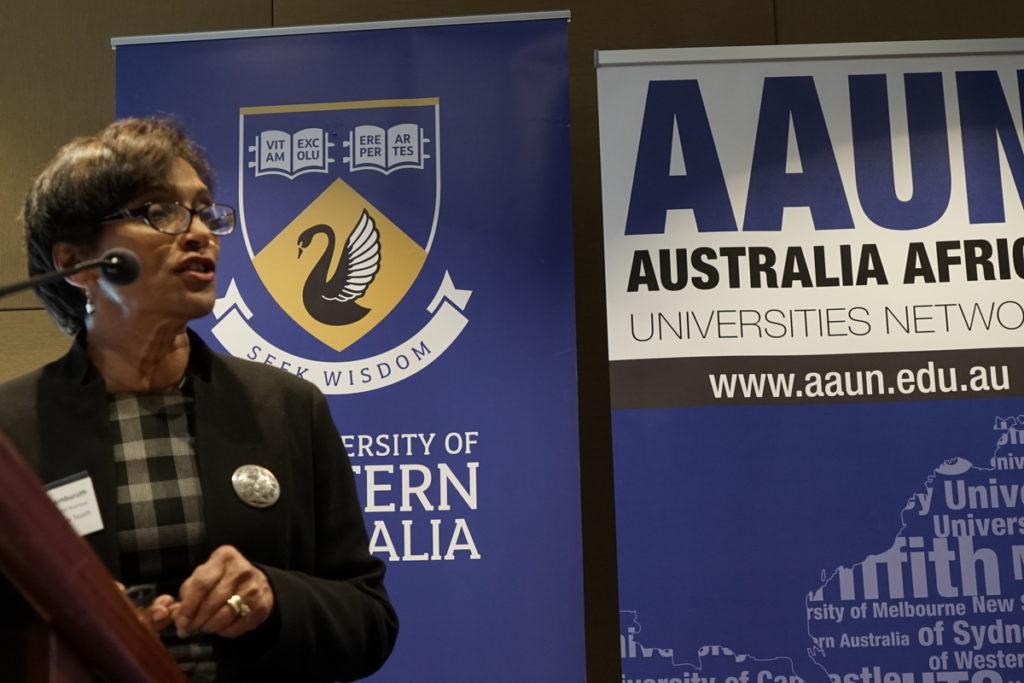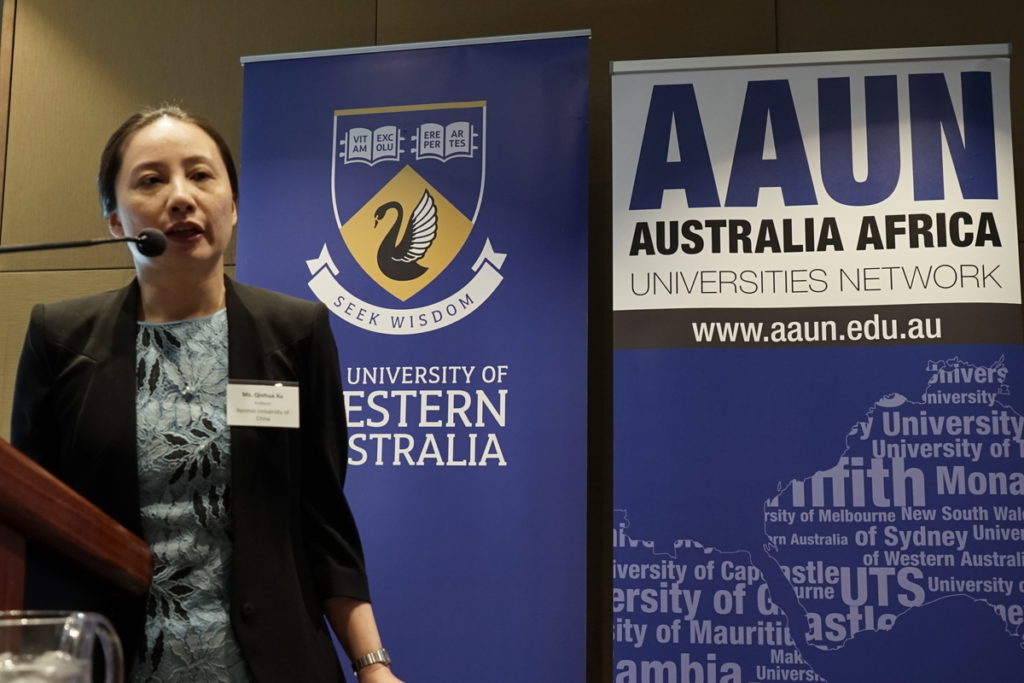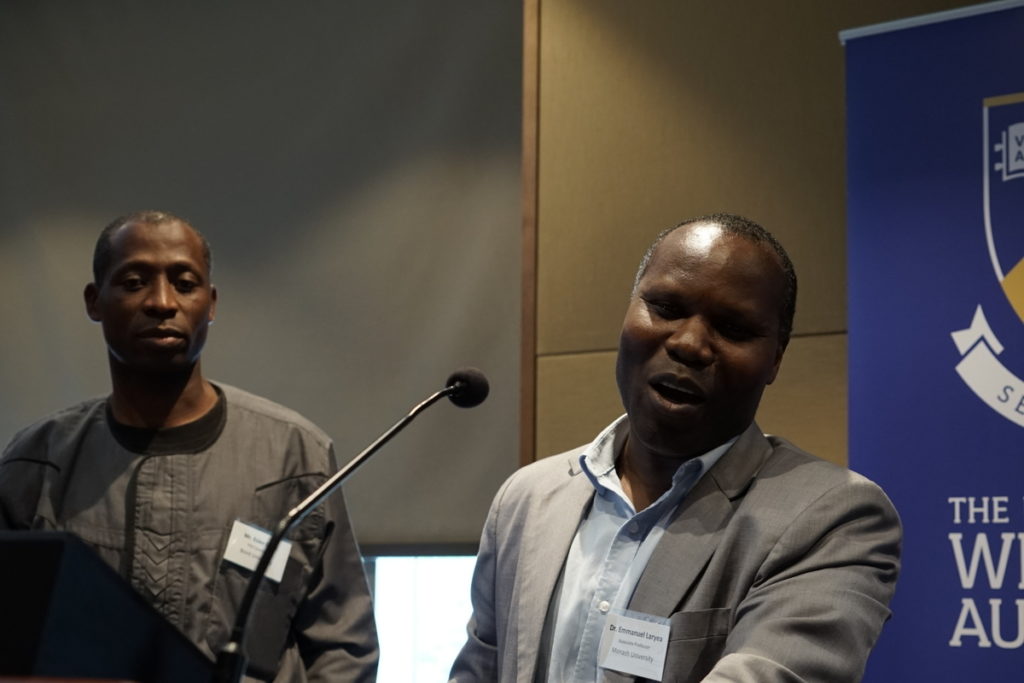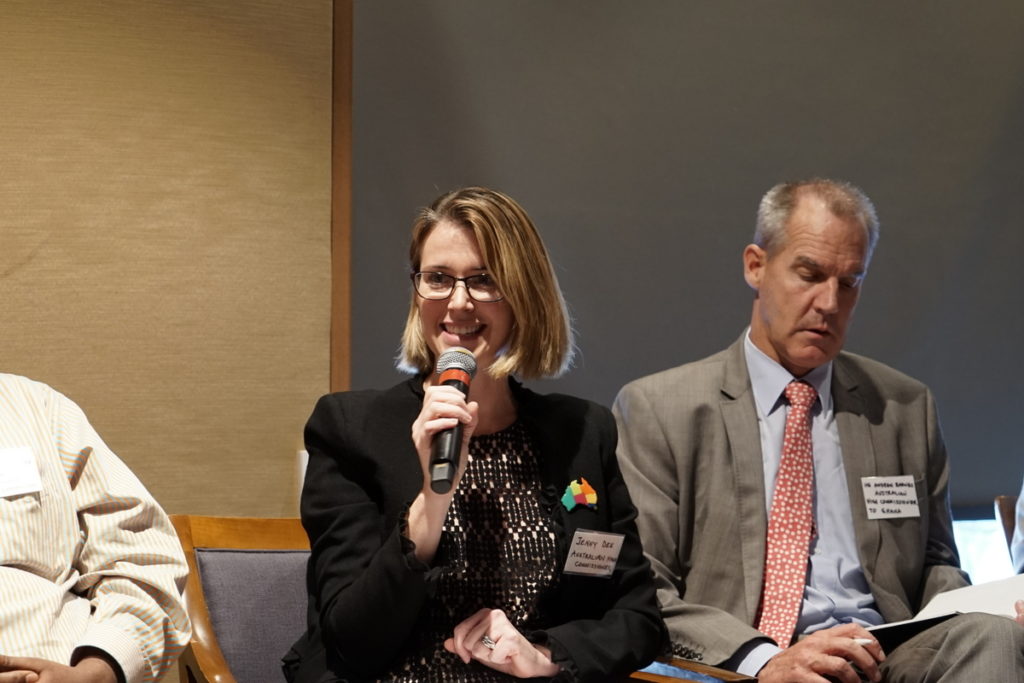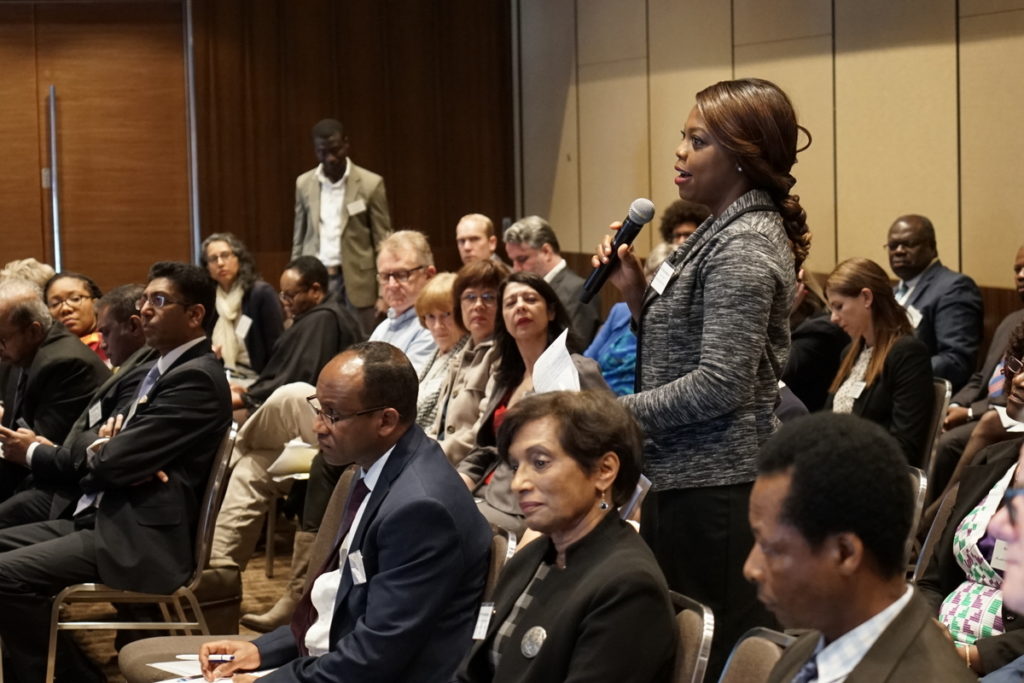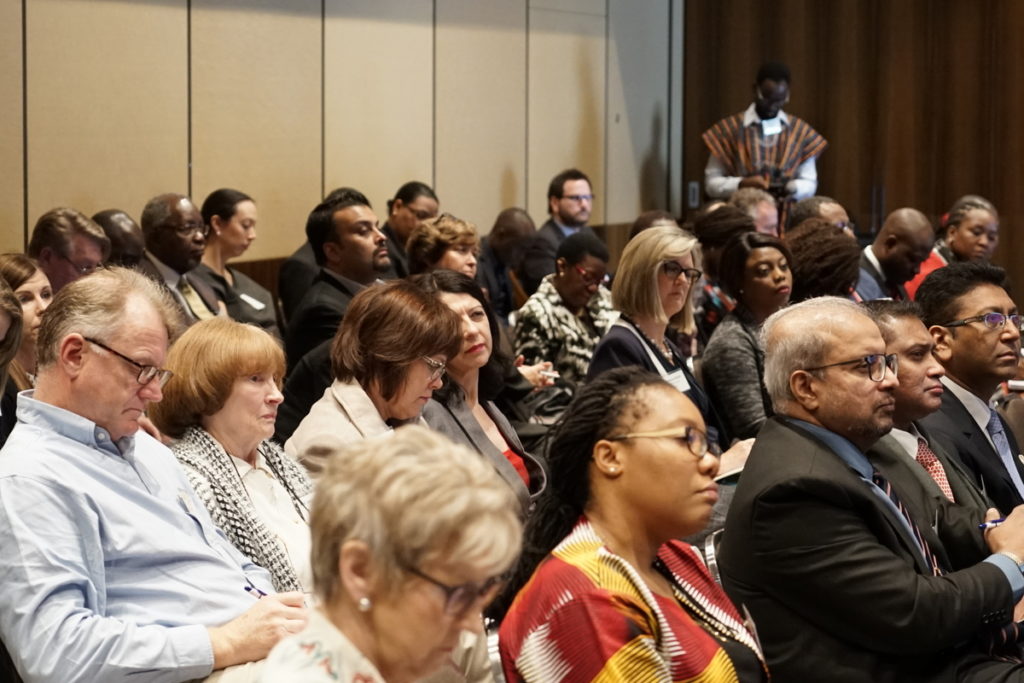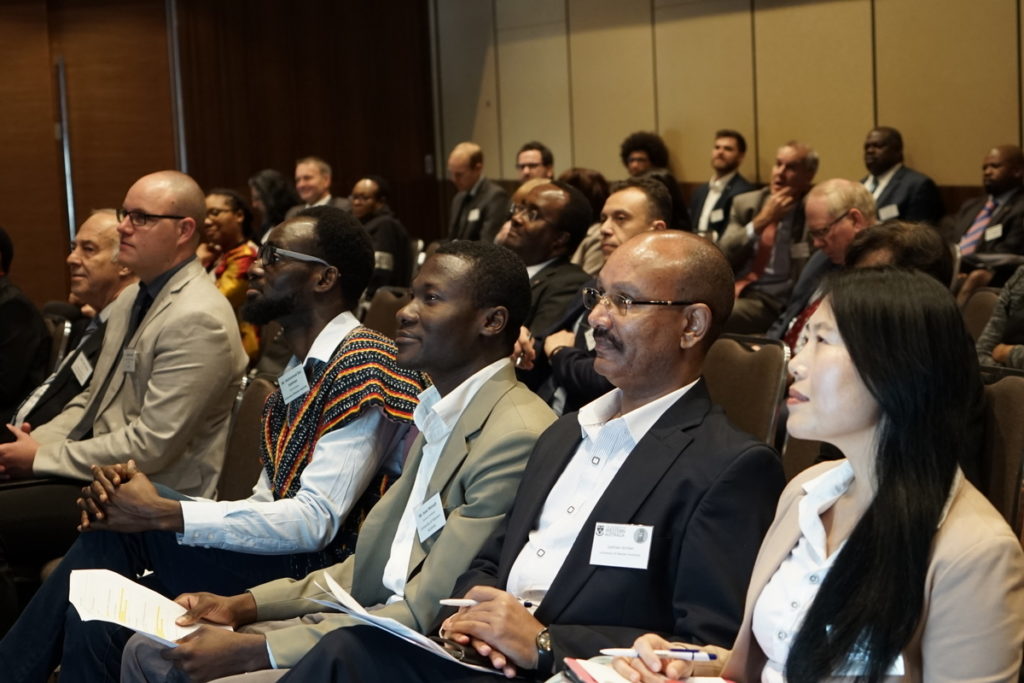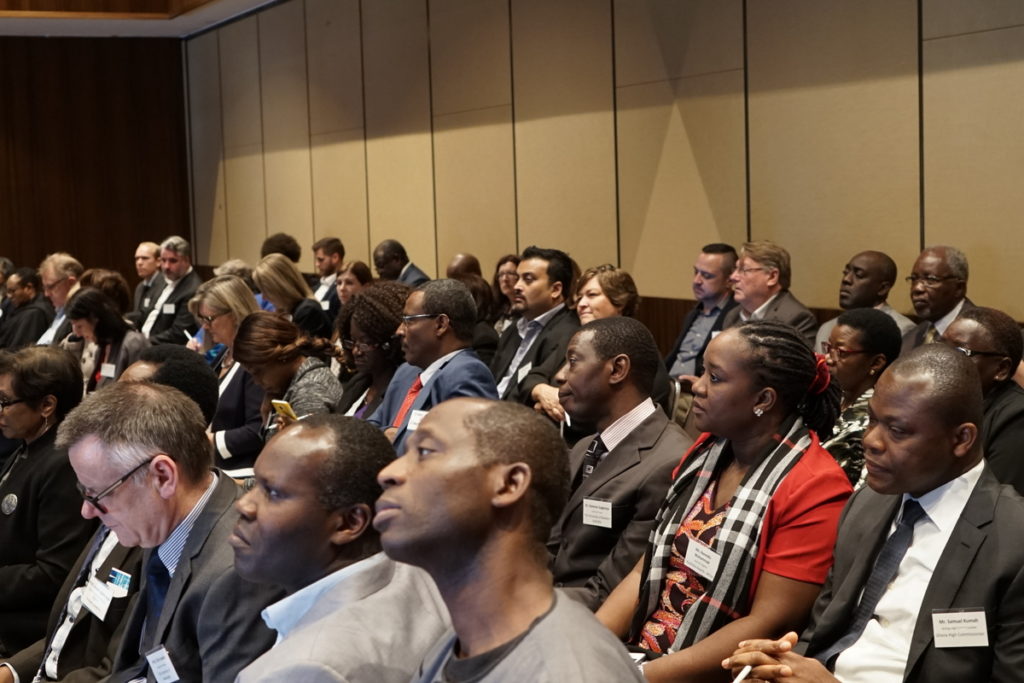AAUN Australia Forum 2017: A Summary

On 4 September 2017, AAUN brought together up to 100 Australian and African expert participants from academia, government, diplomats, business and agencies to assess education and research partnerships for development, engagement of stakeholders, and building sustainable research and exchange programs.
The UN Sustainable Development Goals (SDGs), UN Climate Accords, China Belt and Road Approach, Australian and African international policy objectives provide us a policy framework with mutual benefit to Africa and Australia: shaping research, education and economic development. They should also provide resources to implement partnerships and programs.
AAUN fora and workshops are a key instrument for establishing and building these partnerships and programs.
This page offers a summary of the presentations of the AAUN Australia Forum 2017.
Thank you to all who contributed to its success.
Africa Down Under Conference Speech by the Australian Minister for Foreign Affairs The Hon Julie Bishop MP.
Communiqué and (draft) position paper
Please follow this link for the communiqué (PDF) and this link to the Australia Africa Universities Network (AAUN): Summary Position Paper (working draft 1 December 2017, for comment and further development).
For information: the Australian Foreign Policy White Paper, released on 23 November 2017.
PowerPoint Presentations
Please click titles to view/download the PowerPoint Presentations:
Session I – Australia Africa: Education Partnerships for Development
- Australia-Africa Education Partnerships for Development Prospects for partnering with the African Union
H.E. Mr Mark Sawers, Ambassador of Australia to Ethiopia, Central African Republic, Djibouti, South Sudan and the African Union
Session II – Practical implementation of the UN Sustainable Development Goals in Higher Education, Research, Entrepreneurism, Employment – the role of Networks
- The Higher Education Landscape in Africa: Improving Graduate Training and Research for SDGs
Professor Ernest Aryeety, Secretary General, ARUA
Session III – Security: Environment, food, nutrition, health
- Partnerships for agricultural innovation in Africa
Ms Mellissa Wood, GM Global, ACIAR - Partnerships to enhance multi-stakeholder and multi-disciplinary research
Dr Aldo Stroebel, Executive Director Strategic Partnerships, National Research Foundation of South Africa - Agriculture and Food and Nutrition Security: Environmental Risks and challenges
Dr Peter Johnston, University of Cape Town
Session IV – The Synergies between Africa-Australia-China in Education, Extractives, Business
-
- Trends in Australia – China – Africa Relations
Professor Prem Ramburuth, UNSW
- Trends in Australia – China – Africa Relations
-
- Australia and Chinese Engagement with Africa
A/Prof Emmanuel Laryea & Nosa Esiet, Monash University
- Australia and Chinese Engagement with Africa
-
- Africa-China engagements in education and research
Prof Andrew Adjei, University of Ghana (representing VC Prof Ebenezer Owusu)
- Africa-China engagements in education and research
Snapshots of the Day
Please view the online photo bank for all images
Session 1
Welcome by Professor John Hearn, the University of Sydney, AAUN Co-Chair & Professor Frans Swanepoel, the University of Pretoria, AAUN Vice-Chair
Round table speakers and panellists
HE Mr Isaiya Kabira, High Commissioner, Kenya
Quote: “If you think of the future you have to be thinking about Africa. The population will grow to 2.4 billion people by 2050. By then, the 1 billion middle class will be hungry for food but also for new ideas, and thirsty for water but also for knowledge.
Knowledge must be turned into bread and butter.  Joint applications for grants are a way to go. Africa is not just a receiving continent and education is the ultimate equaliser.
Joint applications for grants are a way to go. Africa is not just a receiving continent and education is the ultimate equaliser.
SDG 4 is highly important”.
HE Mr Mark Sawers, Australian Ambassador to Ethiopia and the African Union
Quote: “If Africa is going to surf its demographic wave and reap the benefits of SDGs, education will be essential.”
Panel quotes
HE Mr Andrew Barnes, Australian High Commissioner to Ghana: “A new policy in Ghana is free education up to senior year of high school, which will hopefully lead to more university students.”
Professor Maano Ramutsindela, Cape Town University, Co-Chair WUN Global Africa Group:
“It’s not just a matter of more education, but what kind of education – who should teach, what should be taught”.
Also see the Annual Report 2016-17 (DRAFT) for related research projects such as “Academics without Doctorates” and “Higher education in Kenya: an assessment of current responses to the imperative of widening access”.
Mr Matthew Newhaus, First Assistant Secretary, Middle East and Africa Division, Department of Foreign Affairs and Trade (DFAT): “The Roundtable and the Australian Journal of International Affairs are opportunities for publications from Africa”.
Session 2
Prof Ernest Aryeetey, Secretary General, African Research Universities Alliance (ARUA)
Quote: “Africa needs to produce more research to achieve SDGs. Only universities can deliver this and partnerships are key.”
Panel quotes
Ms Di Fleming, Executive Director, The Ducere Foundation; Interim Chair, AGAAR:
“We need to invest in people and entrepreneurship in addition to the current focus on jobs. Instead of large trade missions we recommend smaller more personal visits to establish relationships.”
Ms Gita Kamath, Assistant Secretary, Africa Branch, DFAT – Australia Awards Programs and Alumni
“Encourage the private sector to get involved when tendering for awards.”
Professor Frans Swanepoel, University of Pretoria, AAUN Vice-Chair
“We have to prepare for a global competitive knowledge economy.”
Session 3
Ms Mellissa Wood, General Manager, Global Programs, Australian Centre for International Agricultural Research (ACIAR)
“ACIAR’s objectives include driving research investments that improve our ability to tackle cross-sectoral challenges (like nutrition and human health, climate change, water and energy security, and empowering women and girls); improving alignment with and informing on DFAT’s development policy and aid investments; and creating more opportunities for strategic research investment, tapping into the best of Australian science”.
Dr Peter Johnston, University of Cape Town – Environment
“Food insecurity is only going up. ‘Monsanto or organic’ – if food science is not at that cutting edge, I’m afraid that the food factory is going to win.”
Prof Dhanjay Jhurry, Vice Chancellor, University of Mauritius – Health and Research Impact
“We agree, now what to do? Mobility, i.e. post doc exchange is an instrument we could expand.”
Ms Lisa Sharland, Head of the International Program, Australian Strategic Policy Institute (ASPI)
“The engagement of Think Tanks and policy institutes with the AAUN is important – what role can they play?”
Session 4
Professor Prem Ramburuth, University of New South Wales
“Education and Research and Research Training: expertise in these areas can be contributed to Africa in ‘triangular’ collaborations with China and individual African nations.” (see PowerPoint presentation)
Professor Qinhua Xu, Renmin University of China
“We need well-educated people to help realise Sustainable Development Goals. Education partnerships can help deliver on these goals – education on energy could be a starting point.”
Dr Emmanuel Laryea and Nosa Esiet (PhD candidate), Monash University
“Africa needs investment in almost all sectors—infrastructure, technology, education, technical capacity, agriculture and food security, and improved governance, public management and systems. Both Australia and China are development partners of Africa with similar diplomatic and economic purposes.” (see PowerPoint presentation)
Panel and Audience Discussions
Conference Sponsors
Department of Foreign Affairs and Trade (DFAT)
Program and background papers
View/download the Participants Bios and Abstracts
A Strategy for Australia’s Engagement with Africa
Africa region brief – Department of Foreign Affairs and Trade
ARUA-International Launch Conference Program

